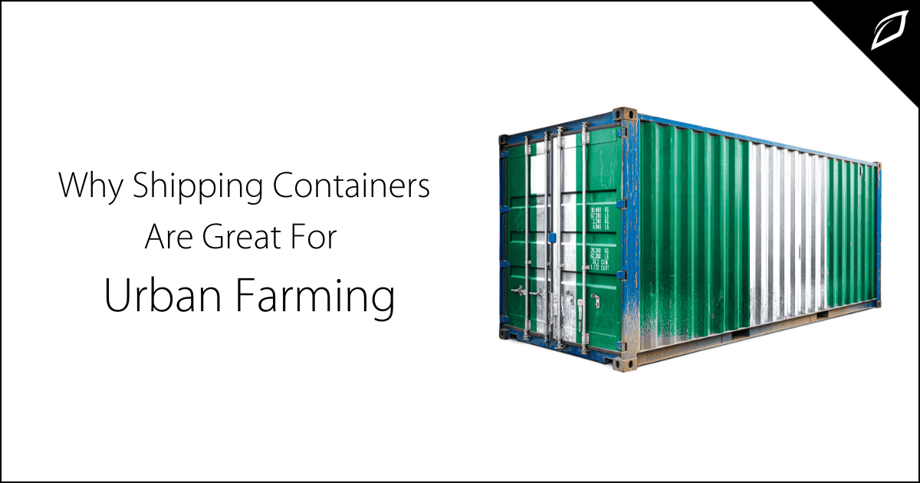
Urban farming has some unique advantages. In particular, it brings the grower closer to the consumer, saving on transportation costs and reducing harmful emissions. But urban farmers face challenges: Arable land is expensive and hard to come by.
Shipping containers offer a unique solution to the challenges of urban farming. They create farmland where none may have existed before, enabling high-efficiency growing while bringing agriculturalists literally to the doorsteps of their consumers.
Let’s take a look at the urban farming landscape and consider how shipping containers can offer a helpful solution.
Growing Urban
Farmers seeking to grow in or near cities may face a range of hurdles.
The most severe constraint is a lack of space. It’s hard to find an open tract of any size in the urban space, and when land is available, the price can be prohibitively high.
Critical commodities such as water and power can be expensive too, making it imperative for growers to find highly efficient means of nurturing their crops.
City growers may also face seasonal limitations. Depending on the location, the growing season may be severely curtailed for those who try to nurture outdoor crops. Typical city farms—those on rooftops or in street-corner community gardens—can be hampered by this constraint.
Shipping containers can help the aspiring urban grower overcome all these potential hurdles.
How it Works
Some have called container growing “the farm of the future.” Restaurateur Kimbal Musk (brother of inventor Elon) has bought into the idea, launching a Brooklyn start-up that leverages multiple shipping containers to create a massive urban grow space.
Shipping containers are plentiful and relatively inexpensive to acquire. Growers can install racks, lighting, and ventilation, or they can buy ready-made container farms from a variety of vendors.
For those seeking speed to market, a ready-made container makes it possible to launch a grow space in almost no time at all. Containers also offer the possibility of easy expansion: when it’s time to scale up the operation, simply add another container beside or on top of the first one.
Unlike a greenhouse, which must be built from the ground up, a shipping container is entirely self-contained and therefore lends itself to automation and agricultural management. By pairing sensors and monitors with remote-management smartphone apps, a grower can fine-tune growing conditions and apply 24/7 oversight without having to be present all the time.
An Urban Fix
The container farm offers multiple benefits for the urban grower.
- Land use: A container farm creates agricultural land virtually anywhere, and its vertically organized grow space makes it highly productive. A container farm can yield the equivalent of an acre of conventional field agriculture, or 2,200 square feet of the highest-producing hydroponic greenhouses, in just a 320-square-foot space.
- Efficiency: With power and water at a premium in urban spaces, the container’s high degree of manageability offers a clear advantage. By exercising remote control over irrigation, lighting, and other key variables, the grower can maximize yield while keeping expenses in check.
- Time to market: A container farm offers an easy way to meet the present demand of farm-to-table proximity. By bringing agriculture to the urban sphere, container farming puts the grower on the doorstep of the potential consumer.
- Seasonality: Impervious to weather, container farming offers the prospect of year-round growing. This can be a game-changer for growers who might otherwise by challenged by the limitations of the local climate.
For the aspiring urban farmer, technology is the key to effective container farm implementation. Many ready-made containers can be purchased with environmental management tool sets already on board, making it even easier to ensure that the self-contained grow space delivers maximum yield with the greatest possible efficiency. Growers will want to seek out containers that come pre-equipped with a full suite of sensors, as well as with app-based remote-control capabilities.
It also makes sense to work in partnership with a vendor who can provide training on these systems and who has the in-house expertise to offer support for your specific implementation.
With the right tools and the right expertise, a container farm can offer a quick and cost-effective launch into the potentially lucrative urban farming arena.










